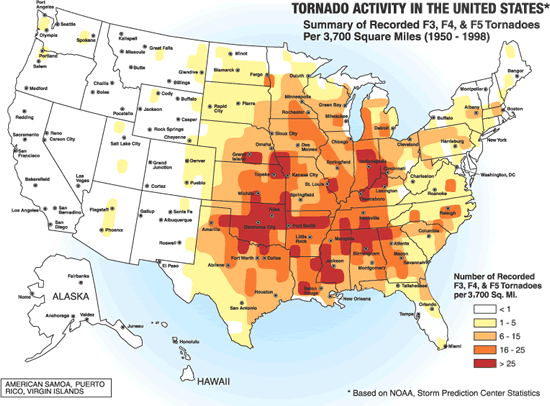今日は何だか妙な気持ちがしました。来週から職場の半分の人が移動しますので仕事が大きく変わります。
今日は何だか妙な気持ちがしました。来週から職場の半分の人が移動しますので仕事が大きく変わります。
料理が得意じゃない私ですが、一人暮らししているので外食が多すぎると余計に寂しい気がします。そこでなんとなく頑張って自分で夕飯を作っています。基本的に「あまり料理ができない人が一体どんな物を作るのでしょうか」ということですが、日本人にとってはたぶん「外国人が日本で一体どんな物を作るのでしょうか」ということになるでしょう。(笑)確かに、日本のスーパーには不思議な物も置いてあるのでそれはそれで問題でもあります。
I'm not very good at cooking, but since I live alone, it's even more lonely if I just eat out all the time. That's why I do what I can to make my own dinner. It's a fundamental question of "What kind of meal does a person make when they don't know how to cook?" But to Japanese, I'm sure it's more like, "What kind of meal does a foreigner make when they're cooking in Japan?" To be sure, there are some pretty mysterious things in Japanese supermarkets, so I admit that is also a valid question.
そこでこれからテキトウ料理シリーズを紹介します。私は料理を作る時に、面倒くさいからレシピなどを見ないででたらめに物を混ぜたり焼いたりして食べています。だから「何料理」かと言えば「テキトウ料理」です。名前はありません。
So I'm going to introduce a new "Arbitrary Cooking" series. When I cook, I'm too lazy to look at recipes or anything so I'm always haphazardly throwing things together and frying them up. So if I had to say what kind of dish it is, all I can say is it's an arbitrary dish. It has no name.
今日の一品はテキトウ・ラーメンでした。
Today's dish was Arbitrary Ramen.

インスタントラーメンのパッケージの裏を読んだらお湯2コップと書いてあったのでテキトウ野菜を2コップのお湯で煮ました。野菜を買う時もテキトウですので今日の野菜は:①アスパラガス、②ニンジン、③ほうれん草、④ネギ。そして麺も入れて、全部テキトウに柔らかくなったらスープを入れて、完成。
I read the back of an instant ramen package and saw it called for 2 cups of water. So I boiled my arbitrary vegetables in 2 cups of water. I pick my vegetables randomly when I buy them, too, so today's vegetables were: 1.) asparagus, 2.) carrots, 3.) spinach and 4.) green onions. Then I put in the noodles, and when it got soft-ish, I added the soup, and that was it.

出来上がったら、「...チーズも入れよっか」と思ってテキトウに切って入れました。
When it was done, I thought, "...Hm, let's add some cheese," cut some up, and carelessly tossed it in.

まあまあ美味しかった。せっかくシリーズにしますから味のスコアも入れた方がいいのかな。では、満点5 にしましょう。
にしましょう。
普通のインスタントラーメンより体にいいでしょうからいつもそういう思いでテキトウ料理を作っています。以上、今日の「自分が何をやっているか分からない」料理でした。
これからも楽しみにして下さい ♪
It wasn't bad. As long as I'm making a series out of it, might as well introduce a taste-score system. I'll make it out of 5 stars. Today's is 3.5/5.
It seemed healthier than just normal instant ramen, and that's pretty much my aim when I'm cooking arbitrarily. Well that's all for today's "I have no idea what I'm doing" dish.
Look forward to more cooking in the future ♪
先月、栃木県庁は定期的な消防訓練を行いました。アメリカの(特に学校の)火災避難訓練は日本と変わりませんが、一つ違う避難訓練があることに気づきました。
Last month, the prefectural office conducted its regular fire drill. America also performs the same kind of fire drill as Japan (especially in schools), but there is one disaster drill that I noticed is different.

アメリカでは、「トルネード・ベルト」という竜巻が頻発する地帯があります。アメリカの中部は平地になっていますので、風が自由に吹きまわることで竜巻が発生しやすくなっています。私の故郷であるウィスコンシン州もこの地帯に入っていますので、私は小学校の頃、毎年春の竜巻シーズンに向けて春先にトルネード避難訓練に参加しました。
In America, there is a region called the “Tornado Belt” because of its high occurance of tornados. This is because wind flows very freely around the flatlands in the central region. My hometown in Wisconsin is in this region, so when I was in elementary school, every year my school would perform a tornado drill in early spring in order to prepare for the spring tornado season.
日本の学校は地震の避難訓練を行いますが、アメリカでは、地震の多いカリフォルニア州だけが学校ではなく、南カリフォルニア地震センターによる公開避難訓練を行います。アメリカの「トルネード・ベルト」にある学校では、竜巻の場合の身の守り方を教えます。
In Japan, schools perform earthquake drills. In America, earthquakes are only common in California, where there are public earthquake drills staged by the Southern California Earthquake Center instead of schools. So while there are no earthquake drills in schools, schools in the “Tornado Belt” perform a tornado drill once a year to teach children how to stay safe during a tornado.

学校での避難の仕方は、窓が一番危ないので建物の一番おくにある場所に移動します。これはほとんど廊下になります。竜巻が去るまで生徒は頭を防御して低姿勢を取ります。これは少し日本の地震避難訓練に似ていますが、窓から離れるのがポイントです。
The windows are the most dangerous place, so the students and teachers retreat to the innermost area of the school. Usually, this is the hallway. So students face the wall and shelter their heads while they wait for the storm to pass. This is similar to Japanese earthquake drills, but the important part is to be away from the windows.


家にいるときに竜巻が発生した場合、地下室が一番安全です。アメリカの多くの家は地下室がありますが、地下室のない家も珍しくありませんので、ない場合は窓から離れた一番奥の場所に避難します。また、嵐避難壕がある家や農家(平野である中西部は農家が特に多い)もあります。家を出てすぐに走って入れるように近くに設置してありますが、家が潰されたらがれきの重さで嵐避難壕のドアを開けられなくならないように、家の中ではなく、ちょっと離れた場所にあることが多いです。現代の嵐避難壕は埋めるだけの既製品が多いですので、設置しやすいです。私自身は知り合いの中で嵐避難壕を持っている人はいませんが、家庭で嵐避難壕を持っているかどうかはその家族が防災対策をきちんとするタイプかどうかということでしょう。
When at home, the safest place is the basement, or the innermost room if the house has no basement. Some homes and farms (farms are common in the midwest) have a “storm cellar”, which is built close enough to the house to quickly go outside and run into, but not too close that the house would collapse on the cellar door and pin it shut. Modern storm cellars are easy to install because there are pre-made “capsules” that can be buried into the ground. I have never met someone who has a storm cellar, but whether a family has one or not is usually a question of if they are people who prepare for disasters or not.